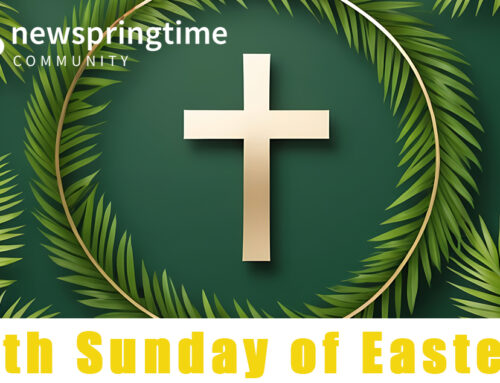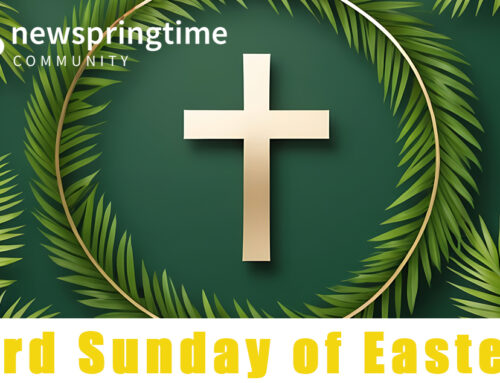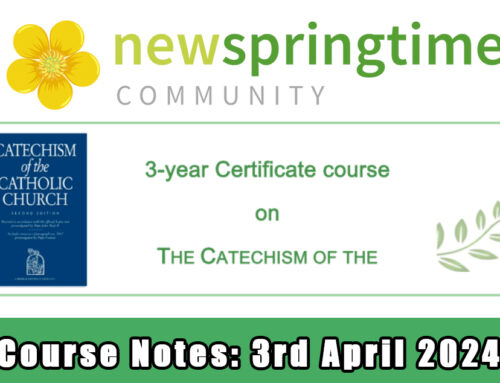If you would like to download a copy of this notes in PDF, please click here
Commentary 7th Sunday of Easter 2024
External and especially internal evidence make it difficult to escape the conclusion that vv. 9-20 were originally not a part of the Gospel of Mark. Did Mark actually intend to end his Gospel at 16:8? If he did not, then either the Gospel was never completed, or the last page was lost before it was multiplied by copyists. Although there are staunch supporters of the view that it was Mark’s intention to end his Gospel with 16:8, this view does not adequately explain
- why the early church felt so strongly its lack of completion that it inserted the longer ending.
- why a book that purports to be the “good news about Jesus Christ” should end with the women being afraid.
- why there is no recorded fulfilment of Jesus’ promised post resurrection appearance to Peter and the other disciples (cf. 16:7) in Galilee.
Thus, the best solution seems to be that Mark did write an ending to his Gospel but that it was lost in the early transmission of the text. The endings we now possess represent attempts by the church to supply what was obviously lacking. The Church regards the longer ending to be inspired and canonical.
The Great Commission in verses 15 &16 seems to be an independent version of Mt 28:18-20. The unusual scope of the preaching of the gospel is not new to Mark’s Gospel. It is clearly anticipated in Mk 14:9 “I tell you the truth, wherever the Good News is preached throughout the world, this woman’s deed will be remembered and discussed.” Belief and baptism are so closely associated that they are conceived of as virtually synonymous. The inward reception is immediately followed by the external act or witness to that faith (baptism). The result is salvation. One of the primary themes of this entire section (16:9-20) is the importance of belief and the sinfulness of unbelief.
The promise of signs in v. 17 is not limited to the apostles. They will accompany “those who believe.” These include the converts of the apostles. The apostles had already been given power to exorcise demons; now this power was to be shared by other believers. Speaking in tongues is not mentioned elsewhere in the Gospels and seems to reflect a post Pentecost situation. Luke 10:19 speaks of trampling on snakes but not of picking them up with one’s hands (Mk 16:18; cf. Acts 28:3-6). The drinking of poison without harm is unknown in the NT. Superstitious use of this verse has given rise to the snake-handling and poison-drinking sects of Appalachia, in the USA. Mention of poison and snakes seems to be a promise of providential protection from danger. Anointing the sick with oil is mentioned in Mk 6:13 but no laying on of hands by the apostles occurs in the Gospels. Paul, however, lays hands on Publius’s sick father (cf. Acts 28:8).
“After the Lord Jesus had spoken to them” (v. 19) may refer to vv. 15-18 or to some other occasion. Mark gives us no geographical or time references. The ascension and session of Jesus are stated in the simplest terms: “he was taken up into heaven and he sat at the right hand of God.” The Ascension was predicted by Jesus (cf. 14:7) and witnessed by the apostles (cf. Acts 1:9); the session was a matter of faith but firmly believed and preached in the early church (cf. Acts 2:33-35; 7:56). There is nothing like v. 20 in any of the Gospels. It sounds more like a summary statement from the Book of Acts of the activities of the apostles.
It may interest you to know that in one manuscript of Mark’s gospel the following addition is present. While it is interesting it is not accepted as canonical. “And they excused themselves, saying, “This age of lawlessness and unbelief is under Satan, who does not allow the truth and power of God to prevail over the unclean things of the spirits. Therefore, reveal your righteousness now”—thus they spoke to Christ. And Christ replied to them, “The term of years of Satan’s power has been fulfilled, but other terrible things draw near. And for those who have sinned I was delivered over to death, that they may return to the truth and sin no more, in order that they may inherit the spiritual and incorruptible glory of righteousness which is in heaven.” This, of course, is not a part of Mark’s Gospel but was probably inserted at this point to tone down the severe condemnation of the disciples in v. 14.





